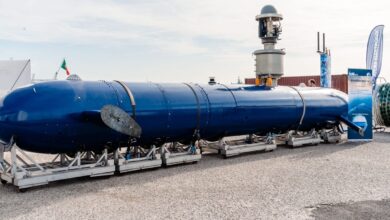British Steel’s nationalisation is a ‘likely option’, says business secretary

Unlock the Editor’s Digest for free
Roula Khalaf, Editor of the FT, selects her favourite stories in this weekly newsletter.
Business secretary Jonathan Reynolds has told MPs that nationalisation of British Steel was a “likely option” even as he launched a bill to save the company.
Reynolds said the decision to recall parliament for an emergency sitting on Saturday had not been taken lightly, as he defended the government’s negotiations with Jingye, the Chinese owner of British Steel.
The bill, he said, was a “proportionate and necessary” step to preserve primary steelmaking in the UK and protect 3,500 jobs, although he did not want to keep the new power for “longer than necessary”.
The 10-page bill will give Reynolds sweeping powers to take control of any steel assets deemed to be at risk of shutting down. Steel companies or managers who fail to comply with the government’s orders could be fined or sent to jail for two years, according to the draft.
The bill will allow government to instruct steel companies to keep assets running, and to take over those assets if companies fail to comply with those instructions. It also provides for a compensation scheme for costs incurred by a company.
Reynolds admitted the emergency legislation was not a magic wand and that finding a private sector partner remained the government’s preferred option. Nationalisation, however, remained the likely option in the long term, noting that the company’s market value was zero.
It had become clear in recent days, Reynolds told MPs during the debate, that the Chinese company’s intention was to cancel and refuse to pay for additional orders for raw materials to ensure continued operation of British Steel’s blast furnaces, the only two remaining in the UK.
The government, he added, had offered to pay for the materials but Jingye instead made a counter-offer for ministers to pay hundreds of millions of pounds without any conditions.
Conservative MP Alex Burghart said the government had “made a total pig’s breakfast” of the situation.
Andrew Griffith, shadow business secretary, accused the government of “nine months of dither and delay” and a “botched nationalisation of steelmaking with the British taxpayer on the hook”.
The emergency debate comes after talks with Jingye to keep the furnaces going had foundered. Jingye, which took over British Steel in 2020, has been in talks with the government for more than 18 months over taxpayer support to move to greener forms of steelmaking.
It rejected an offer of £500mn from ministers last month after warning that the operations were no longer “financially viable”. The company said it has been losing more than £700,000 a month due in part to higher tariffs and uncompetitive energy costs.
Jingye was not immediately available for comment on Saturday.
Industry minister Sarah Jones said earlier that MPs faced a choice between passing the government’s bill or seeing the end of primary steelmaking in the UK.
She told Sky News: “If blast furnaces are closed in an unplanned way, they can never be reopened, the steel just solidifies in those furnaces and nothing can be done.”
Maintaining Britain’s steelmaking has become a strategic priority for the government, which has put aside £2.5bn to support the sector. Closing British Steel’s two blast furnaces would leave the UK as the only G7 country without the ability to make steel from scratch.
Starmer’s government is developing an industrial strategy to back crucial sectors, and is particularly concerned about the threat to steel from US President Donald Trump’s 25 per cent global tariff on steel and aluminium imports.
Additional reporting by Chan Ho-him in Hong Kong
https://www.ft.com/__origami/service/image/v2/images/raw/https%3A%2F%2Fd1e00ek4ebabms.cloudfront.net%2Fproduction%2Fce6d9a80-fe4c-42fb-83e6-43b18fc86690.jpg?source=next-article&fit=scale-down&quality=highest&width=700&dpr=1
2025-04-12 07:04:25




